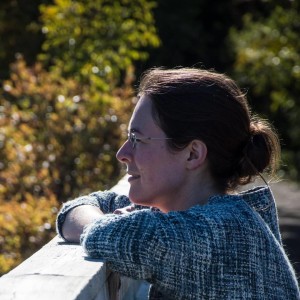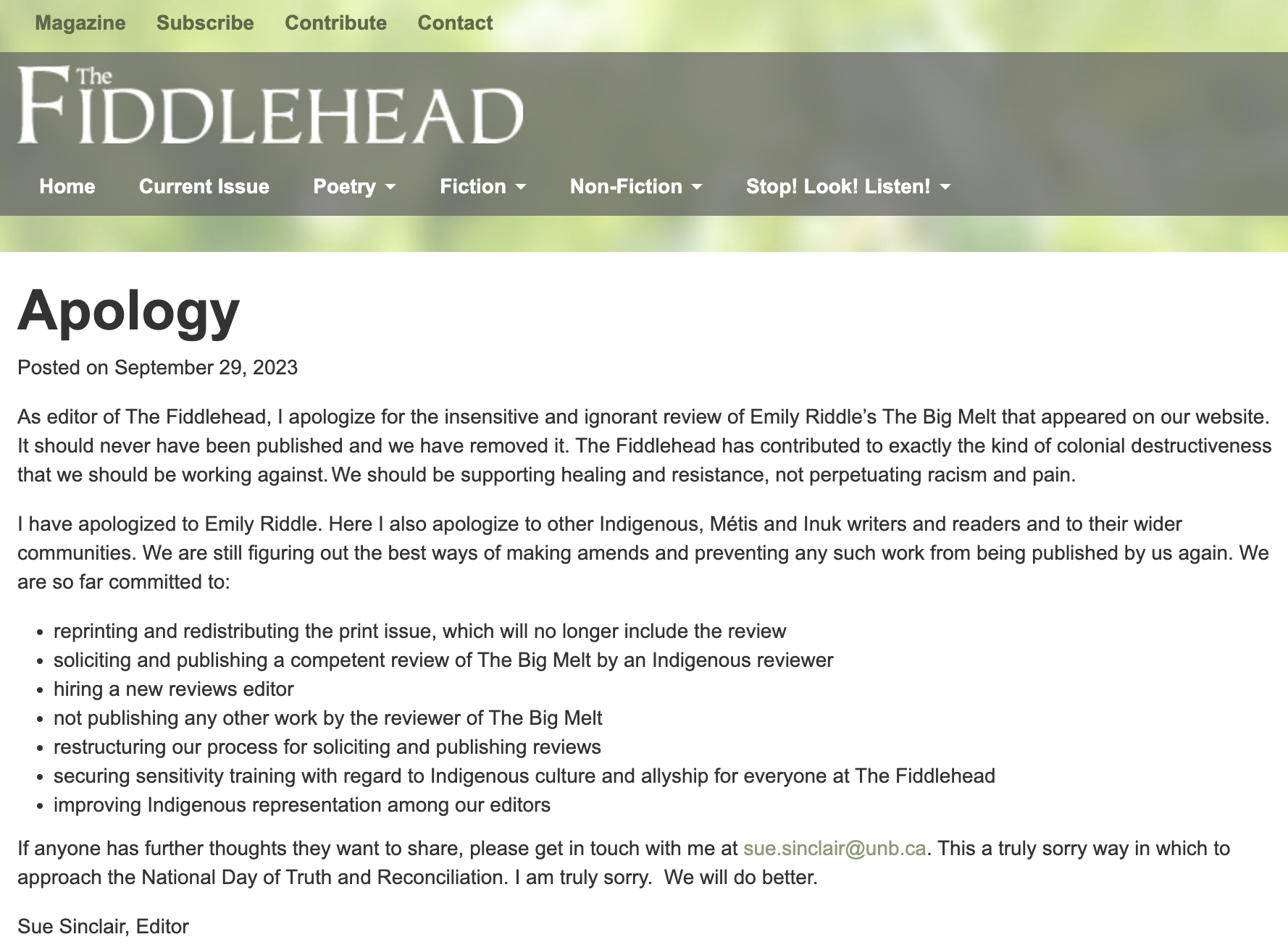 Stephanie Yorke is a poet, fiction writer, and librettist. She has published her work in Canada and in other countries. She is Canadian, and has lived in Oxford and Johannesburg.
Stephanie Yorke is a poet, fiction writer, and librettist. She has published her work in Canada and in other countries. She is Canadian, and has lived in Oxford and Johannesburg.
OM: When you’ve established yourself in the writing scene in one area (city/country), can any of that social momentum transfer to a new area? What was your experience? Is it possible to maintain a presence in another country with frequent trips and exchanges if you are not a resident?
SY: I’m going to be a bit contrary in answering this one. I’ll start off by saying this: even hearing the phrase “the writing scene in one area” fills me through the ribs to the throat with a combination of dread and torpor. Social momentum? Do you mean the stale, overfamiliar interpersonal dynamics? The turf wars? Those two friends who show up for every live reading, and then just sit there and knit the whole time? Click-click, click-click.
Moving cities is great. I’ve had the very good fortune to live in several places that had writing scenes that could be negotiated in order to gain access to fantastic writing. Yes, the muttonheads with a social rather than an aesthetic investment in “the scene” seem to be everywhere, listening intently to this poem about the springtime joys of promenading in the paddock, and this literary fiction about getting one’s head in the feed bucket first – or at least that’s the writing they hear. But those muttonheads are not enough – not nearly enough – to negate the joy of encountering good writing. And thanks forever to those exhausted manager-intercessors who stay on in the towns and cities and neighbourhoods for years and who plan the reading series and keep the good part going forward.
I’ve gone to readings everywhere I lived that I enjoyed or learned a lot from, and have also heard plenty of garbage. I’ve had some convivial and challenging and life affirming (as well as some phony and stultifying) chats over pints afterward. I’ve had chances to read from my writing in places I was just passing through and to meet people who liked my work, and who, because they were strangers, could engage without a pre-existing colleague relationship or friendship bearing upon whatever they had to say. Consider this: when I buy a book after a reading, it’s always because I want to read it; if I buy a book in a strange port, the person I buy the book from knows I’m buying it because I want to read it, and it can be of benefit to both sides of the transaction to know that no one is merely acting out of friendship or to make a useful inroad. There is a lot to be said for not having anybody on your team, let alone anybody under your thumb. It is difficult to get around allegiances and power relationships when you’re with a regular crowd.
That said, I once gave a reading in Bulgaria at which the first question was posed by one of the few fluent English-speakers in the audience. It was unfortunate for me that she didn’t have to go through the kind and thoughtful translator, who I’m sure would have softened or at least shortened her remarks. Boy, her comment was long. It was long as her eulogy would have been for someone she’d liked better. This is another possible outcome of encountering someone you will never meet again.
As for maintaining a presence in whichever country, I haven’t really made a conscious effort about it, but the way things have happened thus far is that I’ve done the better part of my publishing in Canada, with more of the public reading and collaborative work in the UK. I primarily read Canadian magazines, so I tend to submit my work there more often. I’ve done readings in places I’ve lived and places I’ve happened to be visiting, and I’ve gone on short jaunts for the sole purpose of reading. It’s all really sans strategy. I also go to hear poetry readings when I visit places. I’m in eastern Oregon right now, and am trying to find a ride to the next Fishtrap meeting in Enterprise. My sole motivation is to hear some new stuff I might like.
OM: Is geographic attachment important in your writing? Either coming from a specific area or writing about that area? Is it possible to be a global writer when country of origin seems to be one of the first descriptors used for any writer?
SY: Let’s talk first about descriptions. I’m thirty-one-and-a-half. Someone might describe me as young, and someone else might describe me as middle-aged. It wouldn’t change the material fact of my body and mind one jot. The person who would describe me as young would probably be over forty, and the person who would describe me as middle-aged would probably be younger than twenty-five. You know where this is going: the description or characterization they offer would tell you more about the person doing the describing in terms of who they are, what they believe to be true, what they want to be true, and how they orient themselves in the world.
Okay. So, how I describe or characterize my work:
(1) I’m not a global writer. I don’t think the experience of being a privileged, white migrant either gives me the perceiver position or the impetus to be whatever a global writer might be. Descriptors like global, planetary, and transnational carry political import with good reason, and I neither could nor would lay claim to those words in that sense.
(2) I’m not a global writer. I think to be such a thing, I’d not only have to go everywhere, but would also have to – through some novel science – have retained the neural plasticity of a child, such that I could tour the world and have my sensibility shaped by each place I went. As it is, I cut my teeth in Truro. I lived there until I was eighteen, and the brain wrinkled as usual. You should hear my spoken accent. Except for the occasional “eish” and “brilliant,” I still sound like I’m from home.
On the other hand, when I listen to a recording of myself, I can now hear how strong my home accent is, which wasn’t something I could perceive until I’d been outside the Maritimes for a few years. Being able to hear it feels interesting, and doesn’t bother me. But quite a bit of my writing is about how words sound between people, very ear-brain-mouth. So – I hear myself differently from how I used to, though I wouldn’t claim to know what I sound like. Does this effect the work? I don’t know.
New geographies set me ajar, and that is something I find engaging to write about. New places seem to actively glut me with detail, as if they had a will to. The sense of newness and surplus input may have something to do with having grown up in a quiet, staid place. Is geographic attachment important to my writing? Do you need attachment to feel detachment or displacement or estrangement or bombardment?
And I still write a lot about Truro, to which I feel a deep attachment. But, then again, when I describe or characterize my home, given that I’ve spent so much of my life elsewhere and probably will continue to be away…
Let’s put it this way. I come back to Truro to see my family once or twice a year. (There was one year I didn’t make it home.) The first time I was visiting home and saw somebody holding a smart phone, it really weirded me out. I almost felt angry. People in the wide world had been using smart phones for a while, but it wasn’t something that fit in with my picture of Truro.
Something happens with places in your head, and I think that’s worth writing about. I mean, does it even make sense when I say “visit home?”
OM: Is there a lag time between when you’re in a country and when you start writing about that country?
SY: No. But there’s a lag between when I’m in a country and when I can start editing my writing about the experience of being in places in that country.
OM: One of my favourite benefits of travel is taking myself out of the context of my life. Sometimes the truth about my home life is only evident when I’m thousands of miles away. Despite the invigoration and stimulation of something new, I seem to react to travel by focusing inward. What does travel and living in foreign countries do for you?
SY: I have no idea what travel and living in foreign countries does for me. But I have felt a great drive to travel and live in foreign countries.
I haven’t lived one place long enough as an adult to know what the context of my life is, so I don’t know if I can get away from it, or if I ought to try. The invigoration and stimulation of something new makes my thinking sharper and clearer, for sure, but I can’t determine whether it sends my mind inward or outward. Or, for that matter, if thought can ever not be inward.
I saw a short production at the Arcola Theatre in London – it kinda took the kebab skewers to the idea of traveling to find yourself. Good play. Wish I was near my shoebox full of stuff, so I could dig up the playbill for the name to Google. I have this wisp of a memory that there was something specific in that play that would give me a good route into answering this question. But I don’t have the playbill.
OM: Any notes on the writing scene in Joburg?
SY: First note is, I don’t speak isiZulu, Afrikaans, or any South African language other than English, so I can tell you only about one of the writing scenes in Jozi.
Second note is: much of what I’ve seen and read in English has been fantastic. If you are in Johannesburg, go see a play in Maboneng or at the Market Theatre. Go to Forth Wall Books. The single best thing I have seen thus far was ‘Heart’s Hotel’: a drama that incorporated shadow puppets. It was phenomenal.
I’m going to co-opt the question a bit to take my endorsement beyond literature. Go to the galleries in Jozi: go to JAG (Johannesburg Art Gallery), even though you have to cautiously pass through the CBD to get to it. Go to WAM. Go to the private galleries on the Rosebank Mall – Jan Smuts strip. Hell, go to the Origins Centre to look at the art. They try to pretend it’s just an anthropology museum, but just an anthropology museum, my foot.
I also have to emphasize the high, high standard of South African comedy. If you are in South Africa, make sure you take in a live comedy show.
OM: How did your Oxford experience differ from expectations?
SY: I didn’t really have expectations when I went to Oxford. Don’t get me wrong, I was stoked – but I had no idea in my imagination of what it was going to be like there. I was also too busy to really think about it or Google search my way into a mental picture, because right after finishing my masters I went on a very long cycling trip, and was mostly either pedalling or sleeping until I was in the visa office saying, ‘what? Getting the papers takes a month?’
When I got there, I was delighted. You already know it’s beautiful – I don’t need to tell you it’s beautiful — Oxford is beautiful. You can walk in heritage cow fields to riverside pubs or read in a library that’s round. The Natural History Museum – somebody described it as “half church, half train station.” The Ashmolean. And medieval chapels with real castrati singers! Just joking. Most of the chapels aren’t really that old.
In Oxford, if you’re lucky, you can see Thom Yorke. The first time I saw Thom Yorke, I was out at a friend’s Italian restaurant birthday party and drunk on some wine, and I think I intruded on Thom Yorke’s date when I realised oh my god he’s really in the restaurant and I re-enacted that one scene from E.B White’s The Trumpet of the Swan. You know, when the swan attacks the zookeepers? The second time I saw Thom Yorke, I was spending my last scrap of money on a flat white in a certain downtown coffee shop, and I sat down only to realise the person hiding under his hair very near me was Thom Yorke. This time I totally kept my cool! I didn’t give Thom Yorke away. I just drank my coffee as though I were not near him. If anything, I might have not-looked-at-him a little too intently. The third time I saw Thom Yorke I was walking through the park where he jogs. That time, everything came together: Radiohead was streaming through my headphones, I saw him, and I pointed at my headphones and then at him, but this time with a tasteful cool gesture instead of a Louis the Swan gesture. And you tell from his face he got it. He got it! He got what I was saying! That I was listening to Radiohead and he was Thom Yorke!
Aside from Thom Yorke: my college, Wolfson, was a good place to be. Most of my lasting friendships have been forged with people I met either in college or in the English Faculty, and they are good friendships. I’m still doing projects with people I know from Oxford, and really enjoy that.
No place is perfect. I learned many things in Oxford the less pleasant way. For instance: there’s a difference between drive and ambition. Either trait can come in wonderful people, but you have to be wary of people with the ambition sometimes.
What else wasn’t great? I was broke often. I once tried to earn some pin money by joining a study where I had to take a something-inhibitor each day for two weeks and watch a violent slide show at the end. I got conjunctivitis over and over. And finishing the doctorate, as it turns out, was like the Thom Yorke thing: I got it, but not on a smooth first attempt, that’s for sure.
On the balance, though, if I had to take the good with the bad or not at all, I would take the good with the bad.
OM: How do you connect with your readers?
SY: Does this mean being read by them? If so – I guess I write.
OM: Do you enjoy readings? Are they helpful for your writing process?
SY: Yes, one of my favourite things to do is go and listen. Readings make you better at hearing what’s on the page, including your own page.
I also really thrive on live concerts and drama. And opera. Lately, a lot of opera.
OM: What is the point of publishing in literary journals?
SY: So people who read that stuff can read your stuff.
OM: How important are connections in getting your work published?
SY: I don’t know. I suspect interpersonal connections help. I have published work with editors who I knew from a social setting, but I have published most work with editors I’ve never met. That said, I don’t doubt that sometimes Fredericton and Oxford have helped my writing surface in print.
OM: How often do you get feedback on something you’ve published in a journal?
SY: Not often, but occasionally. Sometimes Oscar Martens will get in touch to offer feedback, or so the legend has it.
OM: How do online journals differ from print journals? Are they looking for drastically different material? Do they operate differently?
SY: Not much, no, and not that I can see. Hurts my eyes more to read on the computer, though.
OM: Did you find the people at Signature Editions to be helpful partners in the publishing process? What did they do to promote your book? What did they expect you to do?
SY: The editor they found for me, Clarise Foster, was wonderful to work with. They encouraged me to read in public, and helped line up a reading in Toronto. They expected me to try to find reading opportunities of my own.
OM: Poetry, plays, stories, libretti. Is anyone pressuring you to write a novel?
SY: Why would anyone pressure you to write a novel? I could imagine them pressuring you not to write a novel. Isn’t the pressure to get a job as a bank teller? I’d love to write a novel.
OM: Have you considered starting a blog? Too much work? No interest?
SY: I have not considered it, but as I now do: too much work, given that I have so little interest. That said, I might enjoy running a blog for a group or collective, because that would have a different feel to it. Or, say, a website full of high quality recorded readings or video lectures by writers on writers – that I could get into, if I were situated to execute it well. Given that other people are doing lots of things in this vein, I’d want to make sure I was expanding or improving what’s already readily available, as opposed to making a bunch of redundant content.
OM: Describe the best-case scenario for your writing career.
SY: Everyone knows this joke, but I’ll tell it again. Did you hear about the farmer who won a million dollars? The newspaper people drove up the long gravel lane to his house to interview him. “What are you going to do with the money?” they asked. He answered, “I’m just going to farm till it’s all gone.”
OM: Sometimes creative production and making money are two separate and conflicting things. Is this the case with you? How do you find a balance?
SY: I mentioned that one paid scientific study I participated in earlier, right? There was another one where I had to gamble for green lines in an MRI scanner, and another where I had to try to pronounce unfamiliar phenome clusters while they pelted my brain with a big magnet.
To better answer your question: if you don’t find a balance, sadly, that balance finds you. I have been very fortunate to find jobs and positions which have allowed me intermittent tracts of time to focus on my creative work, as well as chances to read more books than many people get to. I like teaching, so when I get teaching gigs, that’s a good setup.
But the best-case scenario remains the million-dollar lotto prize so I can just farm until it’s all gone.
OM: What action has been most effective in the promotion of your work?
SY: Getting my friend Nisha Manocha to edit it. Once she’s through with it, people want to read that shit.




Great read! Thank you for this interview. I did not know this CDN author and will now check out her work.
This one is worth watching, for sure.
Excellent interview! It is great to see so much enthusiasm and wit.
I want to get in touch with Stephanie Yorke regarding her work on disability. Is it possible to get her email address?
If you make another comment with your full name, preferred email address, and more info on your request, I will pass that on to Stephanie. I won’t post your second comment so that your personal information is protected.